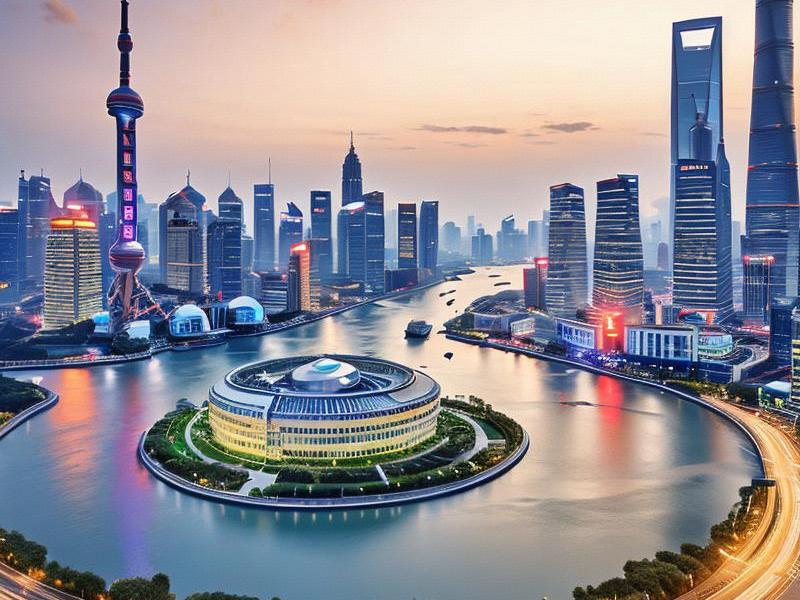
Shanghai, the bustling metropolis on the banks of the Huangpu River, has long been a symbol of China's economic prowess. Over the past few decades, it has evolved from a manufacturing powerhouse to a global center for finance, trade, and now, innovation. This transformation is not just a testament to Shanghai's adaptability but also a harbinger of what the future holds for cities aiming to stay at the forefront of global progress.
The city's journey towards becoming an innovation hub is multifaceted, involving strategic government policies, significant investments in research and development (R&D), and a dynamic ecosystem that fosters entrepreneurship. Shanghai's commitment to innovation is evident in its numerous initiatives aimed at attracting top talent, nurturing startups, and fostering collaboration between academia, industry, and government.
One of the cornerstones of Shanghai's innovation strategy is its focus on high-tech industries. The city has established several technology parks and innovation districts, such as Zhangjiang Hi-Tech Park and the Shanghai International Automobile City, which serve as incubators for cutting-edge technologies. These areas are home to a burgeoning number of tech companies, research institutions, and startups, creating a fertile ground for innovation to thrive.
The Chinese government's support has been instrumental in this transformation. Initiatives like the Shanghai Free-Trade Zone have provided a regulatory environment conducive to business, attracting foreign investment and encouraging the growth of multinational corporations. Additionally, the city's efforts to streamline administrative procedures and reduce bureaucratic hurdles have made it easier for businesses to operate and innovate.
上海龙凤论坛爱宝贝419 Shanghai's universities and research institutions play a pivotal role in its innovation ecosystem. Institutions like Fudan University and Tongji University are not only centers of academic excellence but also hubs for research and development. They collaborate with industry partners to translate scientific discoveries into practical applications, bridging the gap between academia and industry.
The city's entrepreneurial spirit is another key factor in its rise as an innovation hub. Shanghai has witnessed a surge in the number of startups, particularly in sectors like artificial intelligence (AI), biotechnology, and green technology. These startups are not only driving innovation but also creating jobs and contributing to the city's economic growth.
The government has introduced various programs to support these startups, including funding initiatives, mentorship programs, and access to resources. The Shanghai Entrepreneur Public Training Base, for instance, provides training and resources to aspiring entrepreneurs, helping them turn their ideas into viable businesses.
Shanghai's infrastructure is also a significant asset in its quest to become a global innovation hub. The city boasts world-class transportation systems, including the Shanghai Maglev Train, which connects the city center to Pudong International Airport in just minutes. This efficient transportation network facilitates the movement of people and goods, making it easier for businesses to operate and innovate.
上海私人品茶 The city's skyline is a testament to its urban development and commitment to creating a livable environment for its residents. Modern skyscrapers like the Shanghai Tower and the Jin Mao Tower house not only offices but also research facilities and innovation centers. These buildings are designed to foster collaboration and creativity, essential ingredients for innovation.
Shanghai's cultural diversity also contributes to its innovative spirit. As a global city, it attracts people from all over the world, bringing with them diverse perspectives and ideas. This melting pot of cultures fosters an environment where innovation can flourish, as people from different backgrounds collaborate and share their knowledge and experiences.
The city's leadership recognizes the importance of innovation in driving economic growth and improving the quality of life for its residents. Mayor Ying Yong has emphasized the need to continue investing in innovation and technology to maintain Shanghai's competitive edge. His vision for the city includes creating a more inclusive and sustainable innovation ecosystem, where everyone has the opportunity to contribute to and benefit from innovation.
上海品茶网 Shanghai's rise as a global innovation hub is not without challenges. The city faces competition from other global cities like Singapore, San Francisco, and Berlin, which are also vying for the title of the world's leading innovation hub. Additionally, issues like intellectual property protection, talent retention, and environmental sustainability need to be addressed to ensure sustainable growth.
To overcome these challenges, Shanghai is adopting a holistic approach. The city is strengthening its intellectual property laws, offering incentives to retain top talent, and investing in green technologies to promote sustainable development. These measures are aimed at creating a robust and resilient innovation ecosystem that can withstand the pressures of global competition.
The future of Shanghai as a global innovation hub looks promising. The city's strategic initiatives, technological advancements, and dynamic ecosystem position it well to continue its journey towards innovation leadership. As Shanghai continues to evolve, it is setting a benchmark for other cities around the world, demonstrating how urban centers can leverage innovation to drive economic growth and improve the quality of life for their residents.
In conclusion, Shanghai's transformation into a global innovation hub is a story of vision, determination, and adaptability. The city's commitment to innovation is evident in its strategic initiatives, technological advancements, and dynamic ecosystem. As Shanghai continues to innovate and grow, it is not only shaping its own future but also influencing the global landscape of innovation.
